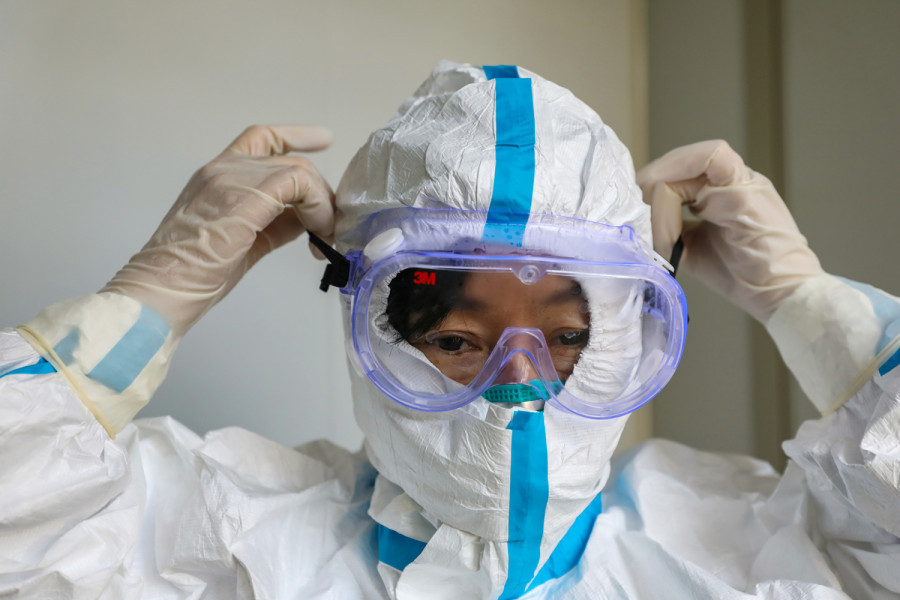Health
Government asks WHO help to hire 200 medical workers to shore up Covid-19-hit health facilities
The UN health agency’s help was sought to get around the lengthy bureaucratic procedure of hiring staff under the government system, officials say.
Arjun Poudel
The Ministry of Health and Population has sought the World Health Organization’s help to hire 200 health workers including doctors to continue health care services during the ongoing Covid-19 pandemic.
The ministry’s move comes at a time when state-run health facilities are strained by the pandemic, which has affected the overall health care services across the country.
“We are taking help from the WHO country office to hire 200 health workers who will be deployed in all seven provinces,” Dr Bhim Sing Tinkary, director at the Family Welfare Division under the Department of Health Services , told the Post.
Apart from medical officers (or doctors), staff nurses, lab technicians and paramedics will be hired for a three-month period with the UN health agency’s help.
Provincial governments will be given the authority to hire the health workers and the Health Ministry will decide whether or not to extend their term after their contract period has expired, Tinkary said.
“As the majority of the current health care workforce is focused on managing Covid-19 cases, we need additional health workers to continue the health care services smoothly,” he said. “The hired health workers will provide services to both the Covid-19 patients and others.”
Although the Health Ministry claims that it has been continuing the health care services even during the pandemic, many patients have been deprived of medical services since the beginning of the pandemic.
Officials at the Department of Health Services said that the Health Ministry decided to take WHO's help to get around the lengthy bureaucratic procedures while hiring human resources through the government system.
“Under the government system we have to first convince the National Planning Commission, take approval from the Ministry of Finance for an additional budget for new staff,” an official at the department, told the Post. “It takes months to fulfil the necessary procedures, even if those agencies are convinced and give their approval to hire additional health workers.”
Most of the health facilities across the country are understaffed after the country adopted the federal system.
After the country implemented federalism with three tiers of governments, the federal government adjusted the civil servants serving in various government agencies and gave them the option to choose the place to serve. Health workers too got such options, which resulted in staff crunch at some health facilities in remote places, as health workers preferred to serve in more accessible areas.
The Health Ministry had halted the employee adjustment process following the start of the coronavirus pandemic.
Public health experts have warned that consequences of halting health care services for an indefinite period will be costly to the nations, as patients might seek treatment only when their conditions become serious.
“Problems do not lessen, even if the patients do not get treatment,” said Dr Rishi Kumar Kafle, executive director at the National Kidney Center. “Ailments only aggravate. For example, a lot of people are seeking renal check-up after their kidneys have been damaged.”
He said that productivity of the patients will also lessen, when they are deprived of treatment for a long time.
With the sharp rise in Covid-19 cases, authorities have converted most state-run health facilities into coronavirus treatment centers. While the lack of safety gear in general hospitals have prevented health workers from attending to patients, fear of infection among other patients has also kept them from seeking treatment unless in emergency cases.




 9.83°C Kathmandu
9.83°C Kathmandu















